
Strengthen ROK-US Alliance by Fixing Nuclear Energy Cooperation
Toby Dalton
senior fellow and co-director Nuclear Policy Program, Carnegie Endowment for International Peace
There is understandable interest and anxiety in South Korea about the policies that the incoming administration of President-elect Biden will pursue toward the Korean Peninsula. Top of the list is how Biden plans to pursue “principled diplomacy” toward North Korea, followed closely by thorny negotiations over the Special Measures Agreement for military cost sharing.
But Seoul and Washington should not lose sight of another challenging issue in ROK-US relations that needs critical attention: rebuilding cooperation on nuclear energy.
The conclusion in June 2015 of a new, ROK-US agreement on peaceful nuclear cooperation was met with relief by both governments. After several years of contentious negotiations, the agreement permitted both sides to move past a few key sticking points that threatened to disrupt relations.
The new agreement helped chart a course for long-term ROK-US cooperation in nuclear energy commerce, on advanced research and development projects, and on nonproliferation. To give more political impetus – to build up the idea of nuclear energy as a “third pillar” of ROK-US relations – the governments also established a High Level Bilateral Commission comprised of senior officials from the U.S. State and Energy Departments, and the Korean Ministries of Foreign Affairs and Trade, Industry, and Energy.
The agreement also helped facilitate a complex joint study of a technology called pyroprocessing. (It is a method to separate and concentrate highly radioactive elements from spent nuclear reactor fuel.) Pyroprocessing is of interest to South Korea as part of its plan to reduce the growing volume of used fuel from its sizable fleet of nuclear power reactors. U.S. law otherwise restricts cooperation on such technology because it could also be used to produce material for nuclear weapons.
Unfortunately, in the five years since the signing of the 2015 agreement and amidst considerable change in both capitals, the governments were unable to make progress toward the vision of a broader nuclear energy relationship. In South Korea, President Moon Jae-In introduced policies to reverse South Korea’s long-standing pro-nuclear energy direction. In Washington, the Trump administration adopted a more transactional approach to relations with allies. Recriminations grew.
The high-level political commission became hostage to disagreements between the two governments stemming from an intellectual property dispute involving KEPCO and Westinghouse and proposed nuclear reactor sales to Saudi Arabia. KEPCO claims that the reactor it proposes to sell to Riyadh is 100% Korean designed, but Westinghouse argues that it contains U.S.-owned technology.
The critical joint study on pyroprocessing ground to a halt over logistical and legal problems involving testing of material produced in Korea at a U.S. laboratory.
Also, since 2015 South Korea ceased purchasing US enriched uranium to fuel its nuclear power plants because it could get lower prices from Russia and China. This is understandable on commercial grounds, but in Washington it is perceived as bad faith after the US Government engineered a novel approach to nuclear export licensing for South Korea because of perceived common goals and Seoul’s strong record on nonproliferation.
If the ROK and US governments allow these disagreements to fester, they could spoil efforts by Presidents Moon and Biden to rebuild a stronger and broader ROK-US alliance. It is time to get nuclear energy cooperation back on track.
The first step is for the two governments to untangle themselves from the KEPCO-Westinghouse intellectual property dispute and to refocus on their broadly shared commercial interest: competing with Russian and Chinese nuclear industry. This issue should be a priority for the high-level commission, so that the two governments can advance shared commercial interests and nonproliferation principles.
As for the intellectual property dispute between KEPCO and Westinghouse, prolonged acrimony hurts the chances of both firms to win overseas contracts that would benefit both. Amicable resolution of their differences would be preferable, but if not, they should pursue legal and not governmental channels of recourse.
Second, the two governments must agree on how to conclude the pyroprocessing study. This is not simply a technical, legal, or budgetary matter – it is all of those and a potentially charged political one, too.
The United States’ firm position against the further spread of technology that can yield nuclear weapons material clashes with the long-nurtured intellectual interests and investments by South Korea’s nuclear science community in pyroprocessing technology. It may be possible for the governments to ultimately settle on a technical half-way house that meets both their objectives: it could permit South Korea to concentrate the volume of its spent nuclear fuel: it would stop short of producing materials that could be used in nuclear weapons, which therefore have very high safety and security risks.
Finally, South Korea should join the United States in requiring the highest standard of safeguards – the International Atomic Energy Agency’s Additional Protocol – as a condition of supplying nuclear technology and materials to other countries. The Additional Protocol gives the IAEA access to more information about a country’s nuclear program, which allows it to have greater confidence that a country is not using commercial nuclear technology for illicit nuclear weapons purposes. If ROK and US firms are to work together to win contracts in the potentially lucrative Middle East nuclear market, they must not be undercutting each other on principle.
Nuclear industry firms often complain that requirements for high nonproliferation standards like the Additional Protocol hurt their market access, especially in a country like Saudi Arabia which thus far has refused to adopt full IAEA safeguards. (Saudi officials also periodically state interest in nuclear weapons should Iran acquire them. Seoul would not want its technology to inadvertently assist a Saudi nuclear bomb program.) But this is a false narrative. A race to the bottom on nuclear standards could have catastrophic, global consequences. If countries are to sustain use of nuclear energy, it must be with best practices for safety, security, and nonproliferation. This is a shared ROK-US interest and vital to the political viability of nuclear energy in both countries.
With these steps, the Moon and Biden administrations could recapture the spirit and direction of the 2015 nuclear agreement and solidify a critical pillar of the ROK-US alliance.
항상 시민과 함께하겠습니다. 한겨레 구독신청 하기

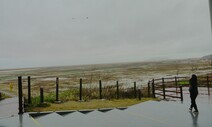
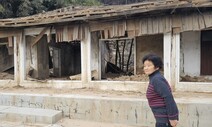
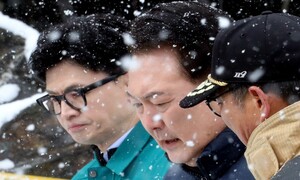
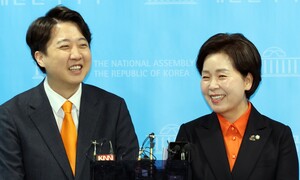


![[사설] 노동자 안전 뒷전 중대재해법 후퇴가 민생 대책인가 [사설] 노동자 안전 뒷전 중대재해법 후퇴가 민생 대책인가](http://flexible.img.hani.co.kr/flexible/normal/300/180/imgdb/child/2024/0116/53_17053980971276_20240116503438.jpg)

![[올해의 책] 숙제를 풀 실마리를 찾아, 다시 책으로 ①국내서 [올해의 책] 숙제를 풀 실마리를 찾아, 다시 책으로 ①국내서](http://flexible.img.hani.co.kr/flexible/normal/800/320/imgdb/original/2023/1228/20231228503768.jpg)
![[올해의 책] 숙제를 풀 실마리를 찾아, 다시 책으로 ②번역서 [올해의 책] 숙제를 풀 실마리를 찾아, 다시 책으로 ②번역서](http://flexible.img.hani.co.kr/flexible/normal/500/300/imgdb/original/2023/1228/20231228503807.jpg)
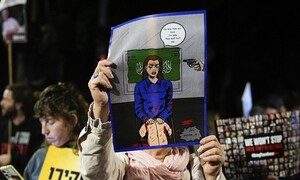
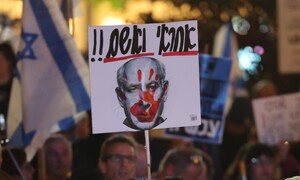
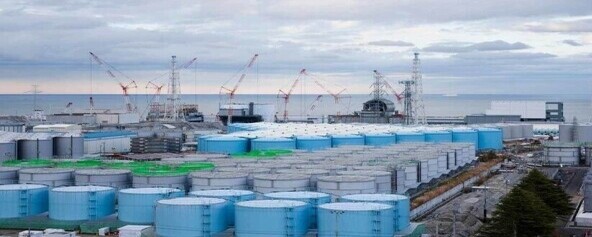

![윤석열이 연 파시즘의 문, 어떻게 할 것인가? [신진욱의 시선] 윤석열이 연 파시즘의 문, 어떻게 할 것인가? [신진욱의 시선]](http://flexible.img.hani.co.kr/flexible/normal/212/127/imgdb/original/2025/0212/20250212500150.webp)
![“공부 많이 헌 것들이 도둑놈 되드라” [이광이 잡념잡상] “공부 많이 헌 것들이 도둑놈 되드라” [이광이 잡념잡상]](http://flexible.img.hani.co.kr/flexible/normal/212/127/imgdb/original/2025/0211/20250211502715.webp)
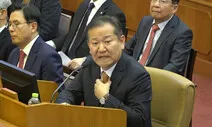
![극우 포퓰리즘이 몰려온다 [홍성수 칼럼] 극우 포퓰리즘이 몰려온다 [홍성수 칼럼]](http://flexible.img.hani.co.kr/flexible/normal/212/127/imgdb/original/2025/0211/20250211503664.webp)

